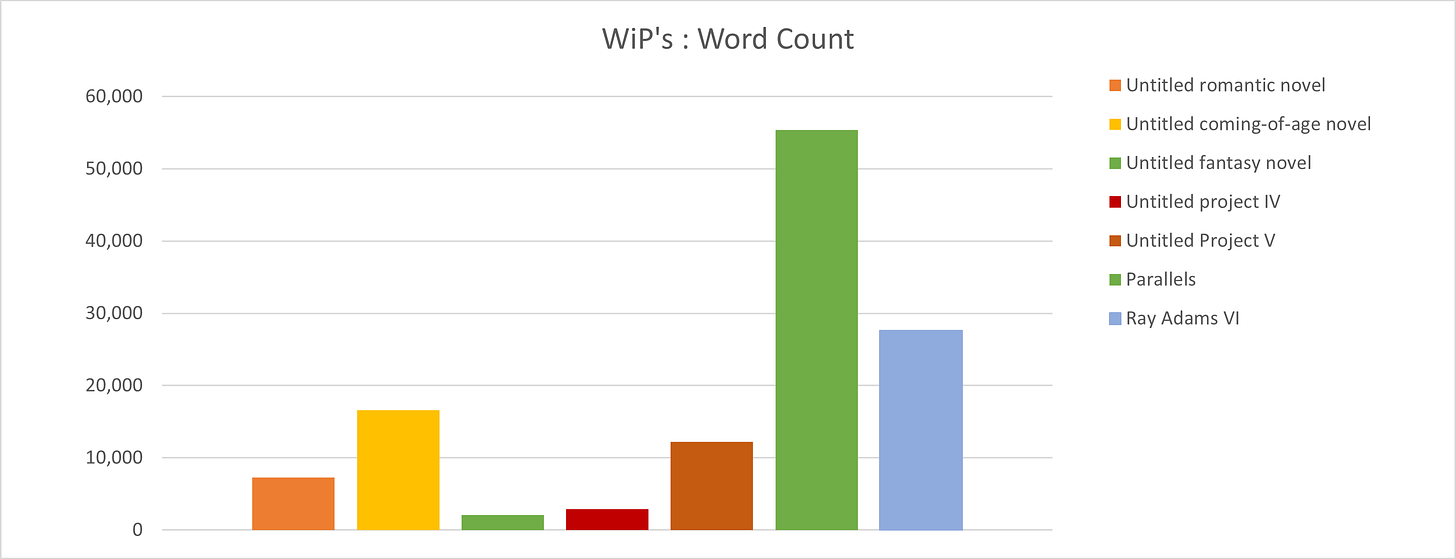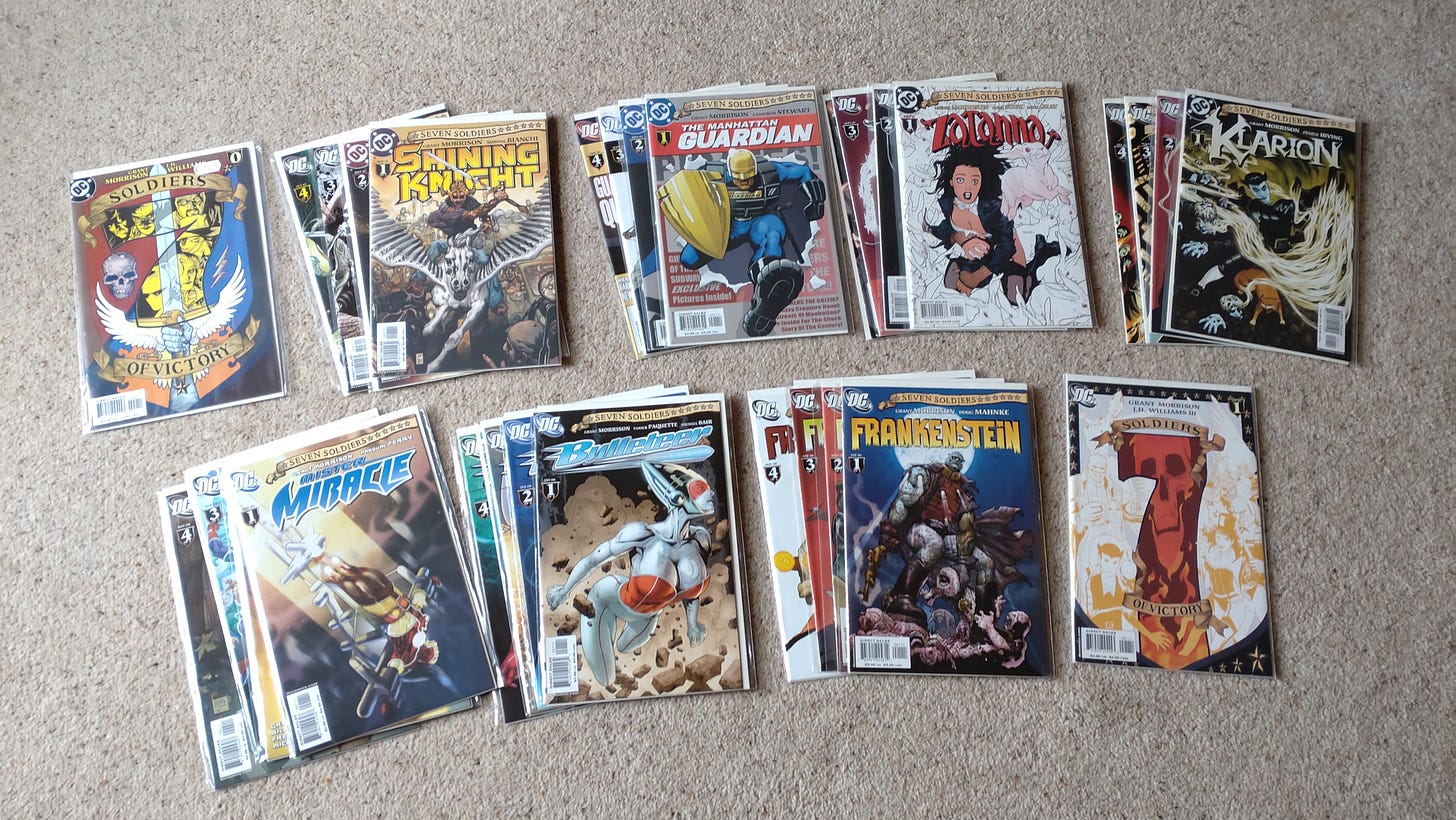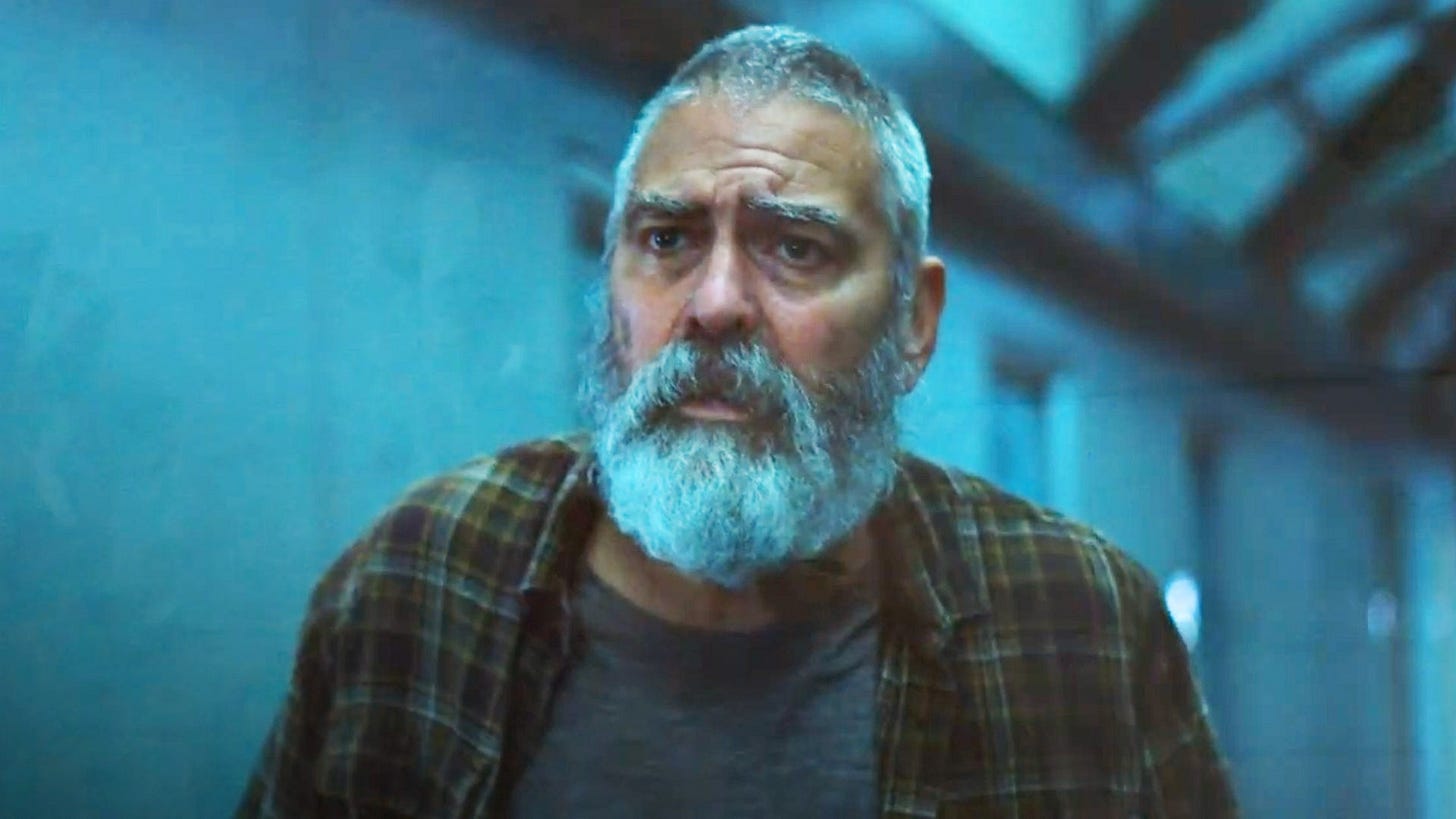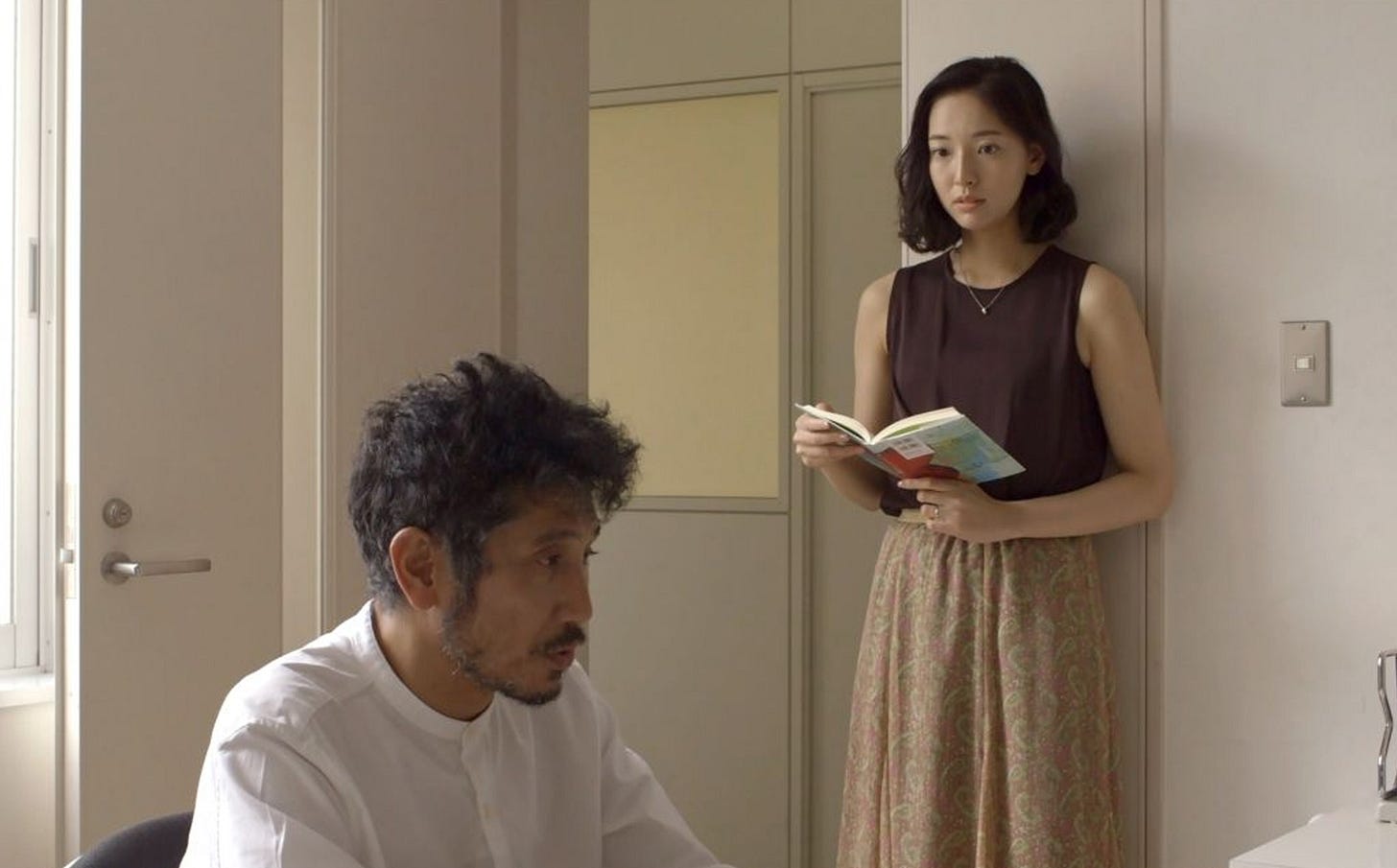WRITING:
First up, for those of you who haven’t seen it, the news from this week is that you can now read my interview with Lucy Nield on the Fantasy Hive website. Lucy has been a champion of mine since we asked her to review Greyskin. Not only did she give us a great review, but off her own back she went on to do the same for Playtime and the Ray Adams book From Within, A Darkness, and last year we sat down (on Zoom) and had a chat about all of this and more. I’m hugely appreciative of her support (and her excellent taste in books).
It was Lucy who also turned me to Gareth Powell, author of the excellent sci-fi Stars and Bones, amongst many others. I was struck by something he said in one of his newsletters recently.
Every writer develops their own unique style and way of expressing themselves, and we refer to this as their "voice."
If you write with authenticity, your voice will convey your individuality, your perspective on the world, and your experience as a human being. It will be a recogniseable way of writing that sets you apart, so that when people read your book, they know they are reading something only you could have produced.
But how do you discover this unique ability to express yourself through words and communicate your creativity?
I will admit, I found myself somewhat at odds with this idea. I’ve a huge respect for Powell, he clearly knows his business and is a fabulous writer. And I see what he’s saying, it’s true of many writers, and many great writers. But I found it interesting that I’ve no interest in aiming for that.
I’m sure I’ve talked before about my original plans for Greyskin, if I self-published; that I would present it as an anthology, give myself half a dozen different nom-de-plumes, and consider it a success if people read it and genuinely thought they were written by different people. I would be equally thrilled if someone reading Playtime’s Over, after reading Greyskin or a Ray Adams, thought to themselves “Wow, this is the same guy?”
Not that Powell is talking about being predictable, of course, but I think I truly want to be able to be something of a chameleon as a writer. I want each book to have it’s own voice, not to be saddled with mine. In the end, so long as it’s good, that’s all that matters.
In her interview, Lucy asked me about balancing serious subject matter with a lightness of touch and when she asked me what the one thing I wanted the reader to get from my books, I didn’t hesitate. Enjoyment. Yes, I wrote Playtime with the hope of adding to the discussion on mental health, and Greyskin evolved into a look at race and colonialism, but I never set out to preach, to put my own voice in there. Indeed, Playtime tackles head-on the idea of fallibility and danger of certainty. If I let my voice shape my work too much, then I run the risk of ending up alienating people who don’t think like me, or have my experiences. Then, when I do have something important to say, I’m just left preaching to the choir.

But does is this approach sensible? When it comes to building an audience, you rely on reader loyalty to keep them coming back, and is this achieved by them tuning into your voice? One of my stupider ideas as an author is that I toyed with the idea of wanting every book I put out to come out under a different name. Make every book a debut. Marketing suicide, maybe, but certainly at this point in my career, the idea of someone picking up a book because my name was on the front seems equally crazy. Is that my self-doubt, or a reasonable point of view? I mean, as a reader I buy some books because of who wrote them.
In a similar vein, at the Greyskin launch we had in Norwich, someone asked me if I thought it was a risk, hopping from genre to genre, unlike those big names who we know for doing one sort of thing. For me, the only risk is doing the same thing twice. I flatter myself that I read a wide range of styles and genres, so it seems natural to me to want to write in the same broad range.
The question may be hypothetical at the moment - I’ve published two books to date, not counting my self-pub work, and who’s to say if there will be a third. But it’s something I’m undoubtedly still to give a lot of thought to.
In other news, I’m pleased to report that editing on Project P, the psychological sci-fi thriller Parallels (working title) is going great guns. We have a much tighter opening1, I’ve had a run through the rest of the text and I’m now working on a more satisfying ending. After that, we’ll take another run through, then see where we go from there.
I have enjoyed:
Seven Soldiers - In my ongoing drive to reread my comic collection (and possibly thin it out a little), I’ve this week been revisiting this 2005 metaseries from comics genius Grant Morrison. Bookended by Seven Soldiers #0 and #1, the series is comprised of seven four-issue miniseries about seven heroes who independently, and oblivious to each other, are fighting the same threat. The most famous of the seven is occasional Justice League member Zatanna2, the others being obscure or heavily reworked (and obscure) characters from DC’s back catalogue.
I didn’t really get it at the time. I thought it looked cool, but was sorta indifferent to / confused by the storytelling. Going back to it, and reading it straight through, rather than over the course of however many weeks it was that the issues originally leaked out, I’m a total convert. Really neat to see these disparate strands of story tie together.
The Midnight Sky - Netflix original movies have a bad rep, but watching this and then reading the online reviews, I do wonder if people only watch them to put the boot in. People can have different opinions, sure, but I found George Clooney’s adaptation of Lily Brooks-Dalton’s Good Morning, Midnight, to be a well-acted, well-produced and moving piece of sci-fi3. George Clooney plays a scientist who chooses to stay behind at his Arctic research station when it’s evacuated because of a global catastrophe. He becomes aware of a space mission returning to Earth from one of Jupiter’s moons, where they’ve been setting up conditions for a human colony, and sets out to a station with stronger communications to warn them against returning home. Slow-paced and introspective, there are nevertheless at least two heart-in-mouth sequences and a really rather beautiful denouement. And Clooney’s beard is astonishing.
Wheel of Fortune and Fantasy - I’m not a connoisseur of Japanese romantic dramas, but was intrigued enough by the sound of this anthology to give it a whirl. So glad I did. Three separate stories, all intriguing, all beautifully shot, paced and acted. And am I the only one finds watching subtitled movies a blessing these days because you cannot two-screen through them? I’m as terrible as anyone for that, so being forced to pay attention is a gift. If pushed to a favourite sequence, I’d probably choose middle story ‘Door Wide Open’, about a student’s attempt to seduce a college professor, but honestly, it was all compelling.
Faye Yu - I was down a Such Great Heights YouTube rabbit-hole when I stumbled across this. Her other videos are great too.
Greyskin (Deixis Press) and Playtime’s Over (Propolis) are both available direct from their respective publishers, as well as from all the usual places, online and off. You can also support my work by buying Ray Adams’ self-published books, or by simply buying me a coffee. You can also pay for this free newsletter, if paying for free stuff is your jam.
Behave.
Hands down my favourite interpretation of the character, at least that I’ve ever read.
Albeit with at least one epic “yeah right, as if…” moment.







